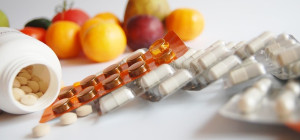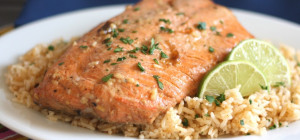
With diabetes, food choice matters a lot. Watching what one eats becomes like death and duties-unavoidable in order to stay healthy. Being diabetic doesn't mean that special foods and complicated diets are necessary. With natural home remedies diabetes treatment and control is possible. It's making healthy food choices and keeping track of one's eating habits, is what helps in the management of blood glucose levels within the desirable range. Dietary needs are virtually the same as everyone else but the list of foods below must be stayed away from.
- Highly Processed Carbohydrates
These are low fiber and fast releasing carbohydrates. The procedure of refining foods tends to remove fiber and a significant part of the required food nutritional value. It is basically the extraction of the entire grain from plant based foods. Things like white bread, some rice forms, French fries, mashed potatoes, sugary, cold breakfast cereals, donuts among others have a high glycemic index and glycemic load. The former, analyzes the capability of foods containing the same amount of carbohydrate to raise blood glucose. They cause supported spikes in blood sugar and insulin levels.
Rather than refined carbohydrates, opt for whole grains and whole grains products. These have a lower GI. The constituents of whole grains (fibre and bran) make it troublesome for digestive enzymes to convert the starches into glucose. This results in lower, slower increases in blood sugar levels and insulin, as well as a lower GI.
- Foods Containing Unhealthy Fats
Fats can be categorised as either bad or good fats, literally. The types of fat in one's diet can affect the development of diabetes. Unhealthy fats would include fats such as saturated fats and trans fats. The previous, is a fat that consists of triglycerides containing only saturated fatty acids. Its sources would include animal products, whole milk dairy products, and certain vegetable products (coconut and palm kernel oil) among others. The latter, are partially hydrogenated oils. Trans fats occur naturally in small amounts in some meat and dairy products but the main source would be the addition of hydrogen to vegetable oil, industrially. The resultant oil becomes solid at room temperature.
Good fats (polyunsaturated) sources would be fats from fish sources, liquid vegetable oils, seeds, nuts.
- Sugars
Any sort of sugar ought to be eaten in moderation and with consideration. Simple sugars tend to be absorbed almost instantly which could lead to an increase in blood glucose and insulin levels. Sugars could be covered up in bread cereals, vegetables, drinks and fast foods. Avoid food samples with artificial sweeteners added as they slow down metabolism and increase fat decomposition. Sugary stuff is also associated with having a high glycemic load. Use natural foods like beets instead.
- Limit Red Meat and avoid Processed Meat
This is meat derived from reared mammals. Red meat examples would be pork, ham, beef and lamb. Constituents of red meat are sodium, nitrate and iron. Sodium causes insulin resistance. Nitrates and nitrites promote an increase in insulin resistance and impair the function of the pancreatic beta cells. Iron (high content) diminishes insulin's effectiveness often as a result of damage to the beta cells. On the other hand, processed meat includes meat products that have been cured, ground, pre-cooked, or had binding ingredients and preservatives added. Examples include corned beef, burgers, hotdogs and bacon. Processed meat tends to throw off the virtually important omega-6: omega-3 ratio. A decrease in insulin sensitivity may be as a result of bad gut bacteria mixed with processed meat. Nitrates (preservative) in conjunction with imbalanced normal flora tend to lessen the release of insulin leading to reduced glucose intolerance.
- Salt Loaded Diet
High sodium diet may lead to serious adverse health effects in people with diabetes. Excess sodium intake contributes to hypertension both directly (by increasing intravascular volume) and indirectly. This could cause an increased risk in diabetes complications (heart attack or stroke). High salt intakes result in worse cardiovascular effects. Both diabetes and salt harmful effects include increased blood clots that can cause a heart attack or stroke and hardening of the blood vessels. A decrease in the amount of sodium helps in lowering of blood pressure, which in turn decreases the risk of progression of cardiovascular diseases.
Contributed by http://healthncare.info/





![The Ultimate BBQ Guide [Infographic]](https://lerablog.org/wp-content/plugins/wp-thumbie/timthumb.php?src=http://lerablog.org/wp-content/uploads/2015/06/barbecue-guide.png&w=300&h=140&zc=1)

